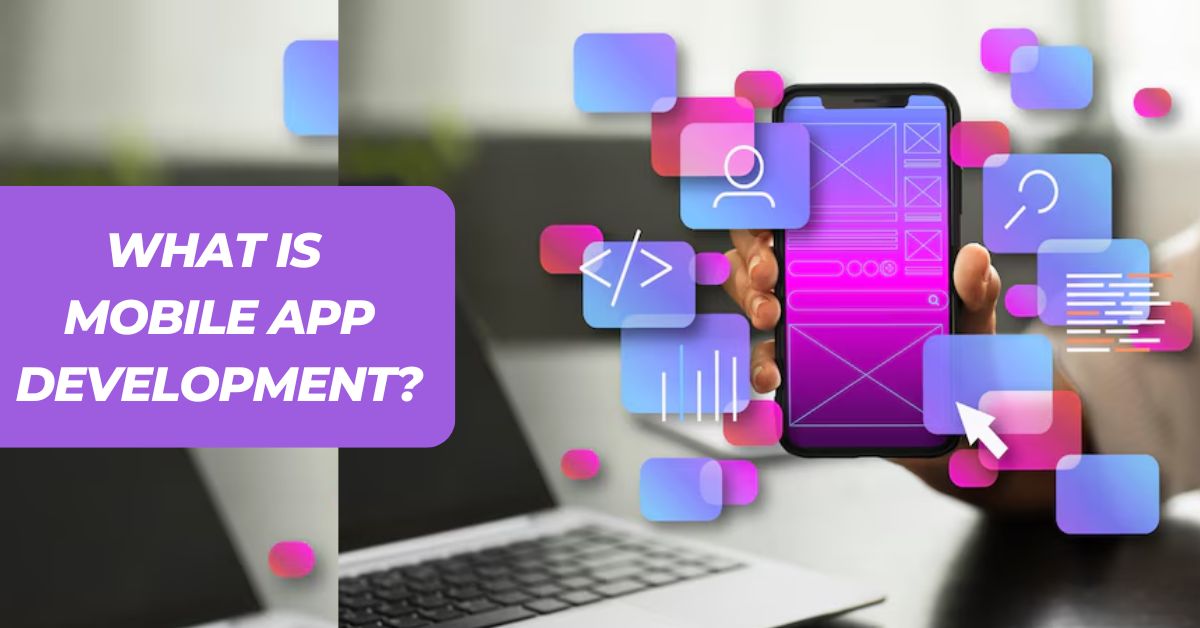What is Mobile App Development?
The digital revolution has completely reshaped the business landscape, it has increased competition to a max. Businesses have to do a lot more than before if they want to succeed. With the evolution in customer landscape, businesses need to rely on mobile apps to reach out to their customers.
In this guide, we’ll walk you through the fundamentals of mobile app development and how investing in professional mobile app development services can lead to better growth and customer engagement. If you are a new or have already established (startup/established company), you should really consider creating a mobile app to stay ahead of the game.
What is mobile app development?
Mobile app development is the process from defining, engineering, testing, to launching software products for a smartphone or other gadgets. These apps are specifically built for platforms like iOS or Android, hybrid apps (using web technologies), or cross-platform ones.
The process to complete the mobile app includes listing the features of the app, presenting it in a simple way, coding the product, connecting the system with databases, and ultimately, putting the app out there for the customers to download or buy.
Why mobile app development matters for modern businesses
1. Customer Engagement and Retention
Apps are like a welcome pack that your brand delivers to any customer. Good app design increases user experience and keeps services just one tap away. Push notifications, loyalty rewards, and personalized content are the strategies to interact with customers and grow.
2. Competitive Advantage
more and more companies are showing increasing interest in mobile app development services in order to stay in the game. A mobile app can give you an edge by offering unique features that a website and your competitor will never be able to match.
3. Better Operational Efficiency
An app is not just a customer tool. Internal tools also exist that consist of employee dashboards, sales tracking systems, and communication platforms and can elevate the team’s productivity and the operational speed as well.
4. Data and Analytics
Mobile apps are the source from which the much-needed customer information regarding their purchasing behavior, preferences, and habits can be effectively extracted. The outcome will help the refinement process of marketing strategies, production of better products, and aid in decision making that will impact profitability.
Key components of the mobile app development process
Just like building a house, developing an app requires planning, tools, and execution. Here are the major stages:
1. Ideation and Planning
Define the goal of your app. Who is it for? What problem does it solve? What features are essential?
2. UI/UX Design
Design wireframes and user flows to ensure the app is intuitive and engaging. The user experience is critical to retention.
3. Development
This includes front-end and back-end development. Developers choose the right frameworks and platforms based on your business needs.
Best practices for mobile app development
- Start with MVP (Minimum Viable Product): Don’t overload your app. Begin with core features and scale over time.
- Prioritize Security: Protect user data through encryption, secure APIs, and regular audits.
- Optimize for Performance: Speed and stability are key—especially for retaining users.
- Gather Feedback Continuously: Build feedback loops into the app to gather user input and improve continuously.
When should you get mobile app development services?
Getting your mobile app developed by professionals when you don’t have a team can help you save time and carry out your vision with fewer risks. For instance, agencies offer a full cycle of mobile app development, including strategy creation, designing, and support.
You should look for a provider that comes with a proven track record, clear pricing policy, and a participatory approach.
Common mobile app mistakes to avoid
- Building without a clear user need
- Ignoring platform-specific design guidelines
- Launching without proper testing
- Failing to update or maintain the app post-launch
- Neglecting app store optimization (ASO)
Final thoughts
Mobile app development is more than just coding—it’s about creating a seamless digital experience for your users. A custom-built mobile app is a potential game changer regardless of whether the aim is customer engagement, brand loyalty or operational efficiency.
But the question is are you ready for this move? If so, getting these services will be one of the greatest digital decisions you will ever make.
Also Read:
Frequently Asked Questions
How much time does the development of a mobile app take?
An app can be made in 3 to 9 months depending majorly on its complexity.
What’s the cost of mobile app development?
Costs vary widely. Simple apps may cost a few thousand dollars; complex platforms can run into six figures.
iOS or Android which is the best?
Ideally both. Cross-platform development frameworks like Flutter or React Native can help you build for both simultaneously.



Very insightful content—thanks!
Security always starts with awareness-just like how Sprunki builds on Incredibox with fresh beats and visuals, we should build safer habits with fresh knowledge.